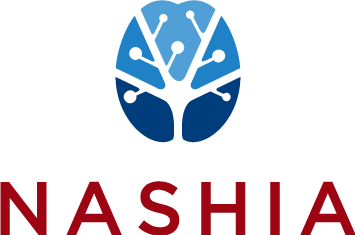Supporting People with Brain Injury through Certified Community Behavioral Health Clinics
This document discusses Certified Community Behavioral Health Clinics (CCBHCs) and how they can support individuals with brain injuries.
CCBHCs are clinics that provide a wide array of mental health and substance use services to anyone, regardless of their diagnosis or insurance status.
These clinics offer nine core services, including crisis services, outpatient mental health and substance use services, and community-based mental health care for veterans.
The document emphasizes the significant overlap between mental and behavioral health challenges and brain injury, highlighting the importance of CCBHCs in providing support for this population.
Supporting Crisis Stabilization for Youth and Young Adults during Reentry
Produced by the Council of State Governments (CSG) Justice Center, this document emphasizes the critical need for crisis stabilization support for young people and young adults with behavioral health needs as they transition from correctional facilities back into the community. It highlights that many of these individuals have mental health disorders and are at high risk of experiencing crises, often due to pre-existing trauma or lack of appropriate care.
This resource underscores the importance of addressing the unique needs of this population to ensure successful reentry and prevent future crises.
A.H.E.A.D.: Achieving Healing Through Education, Accountability, and Determination
A psycho-educational curriculum for traumatic brain injury, the goal is to provide justice-involved individuals who have screened positive for traumatic brain injury (TBI) with the insight and tools to better cope with and address the symptoms that they deal with, such as short-term memory loss, delayed speed of processing, and difficulty with emotional regulation. This group curriculum was developed based on best practices for group facilitation for individuals with TBI. In addition, the group topic focus areas were selected to address the hallmark symptoms of TBI.
Developing Brain Injury Resource Facilitation for Acquired Brain Injury: Indications and Unmet Needs
Members of the Service Access Subgroup of the 2023 Moody Galveston Brain Injury Conference (MGBIC) collaborated on a white paper featuring an overview of the current status of brain injury resource facilitation (RF) along with an analysis on the challenges and opportunities in brain injury RF for acquired brain injury. The paper includes practical policy recommendations for its implementation to the potential funders of brain injury RF programs at the national, state, and community levels. Funding for the MGBIC was provided by the Moody Endowment.
DOJ and DHHS Guidance for Emergency Responses to People with Behavioral Health or Other Disabilities
In public guidance released last year, the U.S. Departments of Justice (DOJ) and Health and Human Services (HHS) emphasized that federal law mandates individuals with behavioral health conditions and other disabilities receive a healthcare response in situations where others would receive one, rather than a law enforcement response. This means that during a mental health crisis, a team of professionals with expertise in mental health should respond, similar to how an ambulance is dispatched for physical health emergencies. Failing to provide this response constitutes a violation of the civil rights of individuals with disabilities.
An Analysis of Intake Tools Used in Brain Injury Resource Facilitation Programs
NASHIA was tasked with identifying intake tools currently used across states for resource facilitation, comparing and reviewing common elements, and recommending best practices for state assessment tools related to an individual’s initiation and areas of need in a brain injury focused resource facilitation program.
NASHIA staff reviewed several historic documents that describe the origins, principles, and components of resource facilitation. A survey was created to collect information from all state government and partner programs currently providing some level of community-based supports. Information was gathered from a total of 33 states and from several state advocacy programs providing community-based service provision.
Show Me the Money! Accessing Medicaid Administrative Claiming for Brain Injury Services and Supports RISE e-Learning Community Summary
This summer, NASHIA facilitated DETAC's Show Me the Money! Accessing Medicaid Administrative Claiming for Brain Injury Services and Supports e-Learning community. This community centered on breaking down the components of MAC to help states develop the groundwork necessary to implement administrative claiming or expand existing claiming. Recordings and key takeaways are available.
Practical Education and Advocacy Tools
Education and advocacy is a powerful tool for driving positive change. This Toolkit is meant to provide individuals with lived experience, whether on Brain Injury Advisory Councils or other advocates, family members, advocacy organizations, providers, and others with the resources and strategies to effectively advocate for your cause, primarily at a state level. It is also meant to support states in understanding the various ways to support individuals in educating and advocating at the state level. The purpose of this is to cultivate a robust network of advocates capable of driving meaningful change in home and community based supports for people with brain injury.
You Can Work After Brain Injury: Employment Planning While Receiving Benefits
In a Disability Employment Technical Assistance Center (DETAC) brief, NASHIA Director of Community Integration Jill Ferrington discusses the benefits of working, despite challenges brought on by brain injury, as well as strategies for success. This brief focuses on considering work while also receiving federal disability benefits through the Social Security Administration (SSA). TBI grantees are asked to share this resource with key partners and request their assistance with dissemination to people with brain injury who are also beneficiaries of SSA.
Optimizing Outreach & Recruitment for Advisory Boards: Recommendations and Best Practices
This resource of the ACL's Traumatic Brain Injury (TBI) Technical Assistance and Resource Center’s (TARC) Optimizing Outreach & Recruitment for Advisory Boards: Recommendations and Best Practices provides recommendations and best practices for outreaching and recruitment of brain injury advisory board members. The resource was developed with support from two members of the TBI Advisory Leadership Group (TAL-Group) (Kelly Lang and Martin Kerrigan) and state staff and members of advisory boards with lived experience.
Aging Guide: Considerations and Best Practices for Older Adults with Brain Injury
This resource of the ACL's Traumatic Brain Injury (TBI) Technical Assistance and Resource Center’s (TARC) Aging Guide: Considerations and Best Practices for Older Adults with Brain Injury was designed to provide states with tools for initiating or improving partnerships within both state aging networks and mental health systems. The resource was developed in partnership with several subject matter experts.
State Considerations - CMS Recognizes Brain Injury As Chronic Condition
This new resource, brought to you by NASHIA and the Brain Injury Association of America, seeks to provide an overview of the practical implications for the new designation of brain injury as a chronic condition by the Centers for Medicare & Medicaid Services.
The guide covers what this new designation means from a policy level, and also offers tips for states on how to support advocates, leverage the designation for additional Medicaid considerations, and utilize it beyond Medicare/Medicaid.
The Importance of Being Earnest: Brain-Injury (BI) Informed Competencies for Employment Service Providers
In collaboration with the Disability Employment Technical Assistance Center (DETAC), NASHIA Director of Professional Development Maria Crowley authored this blog highlighting the efforts of the Administration for Community Living-funded Traumatic Brain Injury (TBI) State Partnership Program Transition and Employment Workgroup to create a “national, culturally competent, person-centered professional development employment training infrastructure for professionals serving the TBI community, known as Vocational Rehabilitation Counselor Competencies.”
Ohio Research in TBI and Concussion in Law Enforcement
Injuries are often part of the job for those in law enforcement. But the injuries that can’t be seen often pose serious threats to officers’ long-term health. New research from The Ohio State University Wexner Medical Center reveals a correlation between head injuries and symptoms of depression and PTSD among law enforcement officers, highlighting the need for improved resources and protocols.
Mind Matters: Building a Justice System That Is Inclusive and Responsive to Brain Injury
NASHIA's Judy Dettmer was featured as a subject matter expert on brain injury in this brand new brief on brain injury and the criminal legal system, brought to you by the Council of State Governments and the Bureau of Justice Assistance.
It is estimated that over half of individuals encountering the criminal justice system have experienced at least one brain injury, yet many of these individuals are undiagnosed or misdiagnosed and left without proper care and supports across the criminal justice continuum.
This report synthesizes findings from a landscape review of brain injury in the criminal justice system, including interviews and focus groups; elevates key resources and best practices; and provides recommendations for building an inclusive and responsive justice system.
Brain Injury Resource Facilitation Programs in the United States
This map was developed to recognize where non-Medicaid brain injury resource facilitation services exist in the US. The provided services vary among states at this time, including but not limited to information & referral, assessments of needs and determination of goals, advocacy, support groups, classes and workshops, peer support, and community outreach. The service delivery also varies widely among states and is often defined by available funding (e.g., some states are only able to offer brain injury resource facilitation to individuals experiencing homelessness or domestic and sexual violence). This map does not include states with Medicaid Home and Community-Based Services waivers. It also does not specifically feature brain injury trust fund programs. The service offerings within states are subject to change and this map is updated annually. Please contact info@nashia.org for necessary updates and feedback.
Access Regulation: State Self-Assessment
The National Association of State Head Injury Administrators (NASHIA), in partnership with the National Association of State Directors of Developmental Disability Services, ADvancing States, National Association of Medicaid Directors, and National Association of State Mental Health Program Directors are excited to share a new self-assessment tool to support states in determining their current level of compliance with requirements in the final Access regulation and identifying areas where action steps are needed to achieve compliance.
The Self-Assessment Tool is available in both Word and Excel versions.
CHATS Screening Tool
Ohio Domestic Violence Network has a new enhanced version of their CARE CHATS tool, a brain injury “screening”/identification tool developed in 2019 and designed to be used as a part of the CARE (Connect, Acknowledge, Respond, Evaluate) framework.
Enhancements include:
Additional question under C to capture other types of events that could cause brain injuries through oxygen deprivation to the brain, including overdoses and medical issues
Additional question under H to capture other types of events to the head, neck and face that could cause brain injuries,, including accidents, shaking, or while using substances
Additional questions under T to capture troubles related to social determinants of health, which are often of primary significance to DV survivors.
The Intersection of Deflection, Traumatic Brain Injuries, and Substance Use Disorders Podcast Series
In this podcast series, the National Association of State Head Injury Administrators (NASHIA) team explores the interconnectivity between brain injury, behavioral health, law enforcement, and the justice system. Through the episodes, the team interviews experts and discusses the prevalence, impacts, and best practices for law enforcement to engage in successful interactions with those living with brain injury and behavioral health conditions.
Beyond Checking the Box: Full Engagement Strategies for Improving Participation of Persons with Lived Experience
This resource highlights strategies for engaging participation of individuals with lived experience on state advisory boards/councils. The TBI TARC, with support from two members of the TBI Advisory Leadership Group, hosted meetings with state program managers and staff members and with individuals with lived experience from eight states to discuss challenges for engagement of individuals with lived experience on advisory boards/councils. Based on the discussions, a set of strategies for full participation were developed which are discussed in the document.




















